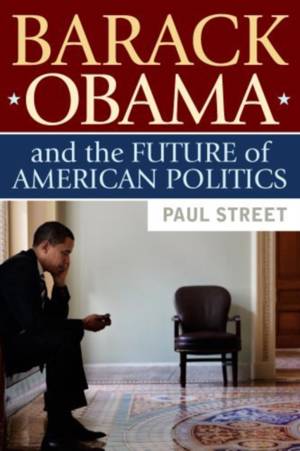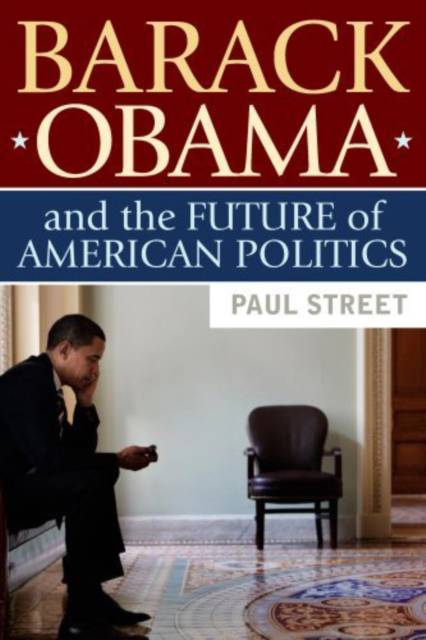
- Afhalen na 1 uur in een winkel met voorraad
- Gratis thuislevering in België vanaf € 30
- Ruim aanbod met 7 miljoen producten
- Afhalen na 1 uur in een winkel met voorraad
- Gratis thuislevering in België vanaf € 30
- Ruim aanbod met 7 miljoen producten
Zoeken
€ 256,95
+ 513 punten
Omschrijving
Many Americans believe Barak Obama represents a hopeful future for America. But does he also reflect the American politics of the past? This book offers the broadest and best-informed understanding on the meaning of the "Obama phenomenon" to date. Paul Street was on the ground throughout the Iowa campaign, and his stories of the rising Obama phenomenon are poignant. Yet the author's background in American political history allows him to explore the deeper meanings of Obama's remarkable political career. He looks at Obama in relation to contemporary issues of class, race, war, and empire. He considers Obama in the context of our nation's political history, with comparisons to FDR, JFK, Bill Clinton, and other leaders. Street finds that the Obama persona, crafted by campaign consultants and filtered through dominant media trends, masks the "change" candidate's adherence to long-prevailing power structures and party doctrines. He shows how American political culture has produced misperceptions by the electorate of Obama's positions and values. Obama is no magical exception to the narrow-spectrum electoral system and ideological culture that have done so much to define and limit the American political tradition. Yet the author suggests key ways in which Obama potentially advances democratic transformation. Street makes recommendations on how citizens can productively respond to and act upon Obama's influence and the broader historical and social forces that have produced his celebrity and relevance. He also lays out a real agenda for change for the new presidential administration, one that addresses the recent failures of democratic politics.
Specificaties
Betrokkenen
- Auteur(s):
- Uitgeverij:
Inhoud
- Aantal bladzijden:
- 320
- Taal:
- Engels
Eigenschappen
- Productcode (EAN):
- 9781594516313
- Verschijningsdatum:
- 30/10/2008
- Uitvoering:
- Hardcover
- Formaat:
- Genaaid
- Afmetingen:
- 150 mm x 229 mm
- Gewicht:
- 566 g

Alleen bij Standaard Boekhandel
+ 513 punten op je klantenkaart van Standaard Boekhandel
Beoordelingen
We publiceren alleen reviews die voldoen aan de voorwaarden voor reviews. Bekijk onze voorwaarden voor reviews.












